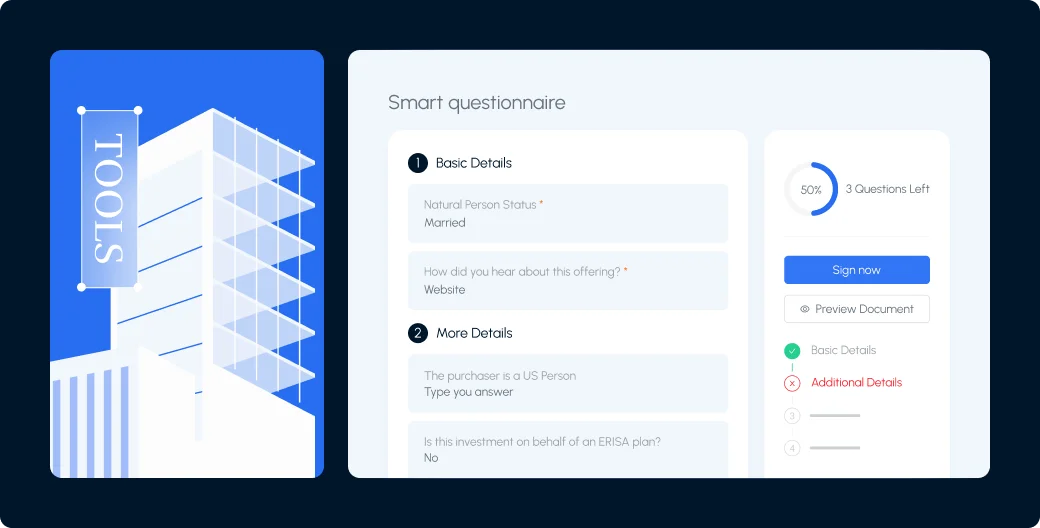Key takeaways
- Core focus: AppFolio Investment Manager emphasizes investor experience with integrated portals, CRM, and compliance visibility, while RealPage IMS centers on operational automation like distribution waterfalls, capital calls, and document workflows.
- Setup and usability: AppFolio is described as easier to set up and more user-friendly for less technical teams, whereas RealPage IMS offers deeper functionality but requires longer setup and a steeper learning curve.
- Pricing transparency: AppFolio publishes a starting price of $650 per month with higher tiers quoted, while RealPage IMS does not disclose pricing publicly, increasing upfront evaluation friction.
- Support and access: Both platforms provide multi-channel support, but AppFolio also offers a mobile app for investors, improving accessibility and ongoing investor engagement.
- Agora alternative: Agora is highlighted as a dedicated investor management platform offering CRM, portals, fundraising, reporting, and financial automation, with strong G2 recognition and responsiveness to customer feature requests.
AppFolio and RealPage IMS are well-known property management platforms offering investor management tools within their broader software suites. If you need a solution to support your real estate syndication business, let’s compare their respective investor management capabilities.
AppFolio Investment Manager overview
AppFolio Investment Manager is an offering in AppFolio’s suite which includes AppFolio Property Manager. For investment management, the solution offers:
- CRM
- Investor portal
- Fundraising
- Asset and pipeline tracking
- Document management
RealPage IMS overview
RealPage has a broad commercial real estate ecosystem of products that includes IMS for syndication management. It provides:
- CRM
- Investor dashboards
- Distribution workflow
- Financial management
- Capital call coordination
AppFolio Investment Manager vs RealPage IMS: pros & cons
| AppFolio Investment Manager | RealPage IMS | ||
| Pros | Cons | Pros | Cons |
| Strong customer support. | May seem too large to prioritize individual client needs. | Supports management of growing asset and investor portfolios. | Initial setup difficulties, like sending out investor invitations |
| User-friendly search function. | Some features may require tech expertise. | Can be difficult to navigate. | |
AppFolio vs RealPage IMS: key differences
AppFolio and RealPage IMS are both quality investment management software, but there are some specific differences you should know about before buying.
Top features
AppFolio focuses on enhancing the investor experience. The software offers an investor portal that provides transparency by integrating investment management and property management capabilities. It also offers compliance support and mobile accessibility.
RealPage IMS specializes in automation with features like distribution waterfalls that streamline investor distributions and investor dashboards. It also helps manage document workflows and handling investor commitments and capital calls.
Pricing
AppFolio’s core plan starts at $650 per month, while their premier plan with additional features like K-1 dashboards and financial reporting requires a custom quote. RealPage IMS does not publicly disclose pricing information on their website.
AppFolio offers a free software discovery demo. RealPage provides an online product flyer before booking a consultation call.
Best for
AppFolio Investment Manager and RealPage IMS best suit larger commercial real estate investment managers and firms. AppFolio’s focus leans more towards enhancing the investor experience, while RealPage IMS specializes in operational efficiency and workflow automation for investment management processes.
Customer support
AppFolio Investment Manager provides phone, email, chat and a FAQ page.
RealPage IMS offers phone support, an email/help desk, chat, and a knowledge base.
Platforms supported
RealPage IMS and AppFoilo are cloud-based web applications accessed via desktop or mobile device. AppFolio also provides a mobile app for their investor portal.
Integrations
AppFolio Investment Manager’s core plan integrates Microsoft Outlook and Gmail. API and integrations with tools like Zapier and Google Tag Manager require the premiere plan.
RealPage IMS integrates with Microsoft Outlook, Gmail, and DocuSign.
Software training
Training options for both platforms include in-person, live online, webinars, documentation, and videos.
Ease of administration
AppFolio gets high marks for ease of administrative use. RealPage IMS is generally efficient, but admin usability can sometimes be an issue.
Ease of setup
RealPage is known for being more challenging to set up. AppFolio is quite simple to get going, and most users are on their way in no time.
Ease of use
Real Page IMS is a large and complex system that requires a longer learning curve for some users. AppFolio is more user-friendly, especially for less technical-minded people.
Market segments
RealPage IMS and AppFolio Investment Manager have the same target audience of real estate investment managers.
Value for money
Both RealPage IMS and AppFolio Investment Manager get high marks for value. Reviews show that AppFolio costs a little less monthly than RealPage, and it has the same number of features (but different).
Reviews
| AppFolio Investment Manager | RealPage IMS | |
| G2 | 4.6 (106 reviews) | 4.3 (13 reviews) |
| Capterra | 4.6 (79 reviews) | 4.6 (79 reviews) |
AppFolio and RealPage IMS both receive positive reviews, averaging scores around 4.6 and 4.45 out of 5, respectively. Notably, AppFolio has a significantly higher volume of reviews across platforms like GetApp and G2, maintaining similar high ratings to RealPage IMS.
Awards and recognitions
AppFolio received recognition in G2’s Winter 2024 Grid Report for Real Estate Investment Management.
RealPage IMS’s investment management offering has not recently garnered major industry accolades or distinctions.
Alternatives
Agora is another investor management platform to consider. It has received multiple badges and high ratings from G2 users in their Winter 2024 and Spring 2024 reports, with customers praising our support and responsiveness to feature requests. Agora’s capabilities encompass real estate investor CRM, portals, reporting, fundraising, and financial automation to increase efficiency and enhance investor relations for fund managers.
Which platform is right for you?
If your priority is detailed investment management and efficient operations for larger, complex firms and investment advisors, RealPage IMS may be the better fit. For a more integrated property management and investment approach for those newer to technology, AppFolio provides a user-friendly, cost-effective option. Consider your specific needs, such as budget, ease of use, and key features, to choose the right platform for your business.
Conclusion
AppFolio and RealPage IMS both offer strengths that cater to different business needs. Before selecting any platform, take some key steps: define your must-have requirements, demo the solutions hands-on, and speak with current customer references. Evaluate how the available options align with your syndication business’s operations and efficiency goals to determine the best fit.






![AppFolio alternatives: Best property management platforms compared [2026]](https://res.cloudinary.com/de1ep59a0/images/v1768801446/Appfolio-alternatives_cover-02/Appfolio-alternatives_cover-02.webp?_i=AA)



